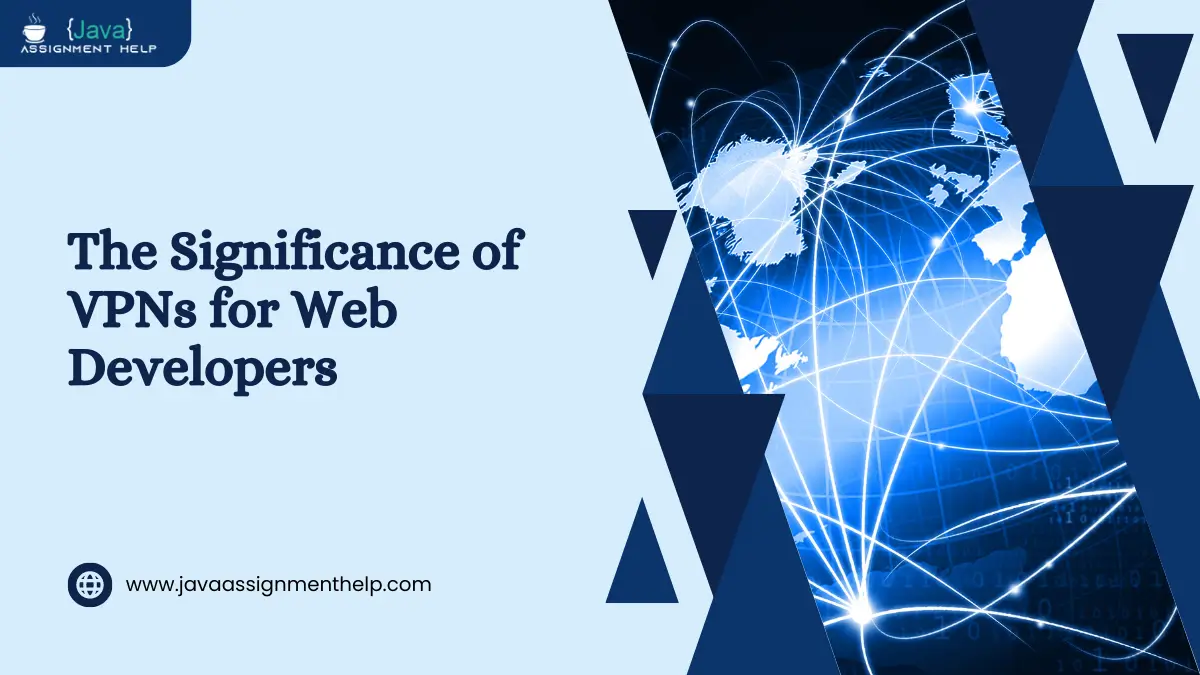Significance of VPNs for Web Developers: Web development has expanded dramatically in recent years. With the rapid growth of technology and the internet, the need for robust security measures has become paramount. Among the various tools available to web developers, Virtual Private Networks (VPNs) have emerged as a linchpin for cybersecurity. But why are VPNs so significant to web developers? Let’s dig deep into the multiple ways VPNs serve this ever-growing community.
Significance of VPNs for Web Developers
Privacy Protection and Encryption
One of the primary concerns for web developers is the security of their work and the data they handle. VPNs offer a robust solution by masking the user’s actual IP address and instead displaying the IP address of the VPN server. This essentially makes the user’s online activity anonymous, shielding them from potential cyberthreats.
VPNs are not just about masking IP addresses; they also encrypt data traffic. Advanced encryption methods, like the 256-bit AES, ensure that the information transmitted is unreadable to any potential eavesdroppers. This encryption ensures that both the developers’ and their clients’ data remain secure. Surfshark, ExpressVPN, and NordVPN are among the reputed names in this category.
Remote Access to Development Environment
With many businesses now operating remotely, VPNs play a critical role in ensuring web developers can access company networks seamlessly, regardless of their physical location. This means they can get to essential resources, tutorials, and tools without any geographical restrictions.
VPNs can enhance the speed and reliability of internet connections by reducing unnecessary connection hops. This optimized route ensures quicker access to development environments and resources, making the development process smoother and more efficient.
Secure Connection with Clients’ Systems
VPNs employ the Zero Trust Networking principle, allowing clients to access only specific development environments, servers, or applications relevant to them. This tailored access ensures that confidential environments remain exclusive.
By employing identity-based authentication, VPNs add another layer of security. Users must prove their identity and authorization before they can access specific data, ensuring that only the right people access the right information.
Geolocation and Cross-Browser Testing
It’s vital for web developers to ensure that applications and websites function seamlessly across different countries and browsers. VPNs enable developers to emulate access from different geographical locations, ensuring comprehensive testing.
Apart from geolocation testing, VPNs also facilitate browser compatibility tests. This ensures the developed applications provide a consistent user experience, regardless of the user’s choice of browser.
Access Control and Data Protection
With VPNs, access control isn’t a concern anymore. They allow administrators to determine who can access what, ensuring that sensitive data remains in the right hands.
While developing, it’s crucial to keep projects discreet. VPNs ensure competitors can’t track a developer’s online activities, thus safeguarding project confidentiality and preventing idea theft.
Conclusion
The intricate world of web development is rife with challenges, not the least of which is ensuring comprehensive online security. VPNs have, therefore, become an indispensable tool in the developer’s toolkit. Providing a combination of privacy, encryption, and access management, VPNs guarantee that web developers can work securely and efficiently. For web developers looking to protect their digital assets and ensure a frictionless development process, investing in a reliable VPN service is a no-brainer.
Also Read: How To Improve The Security Of Your Cloud Computing Environment

